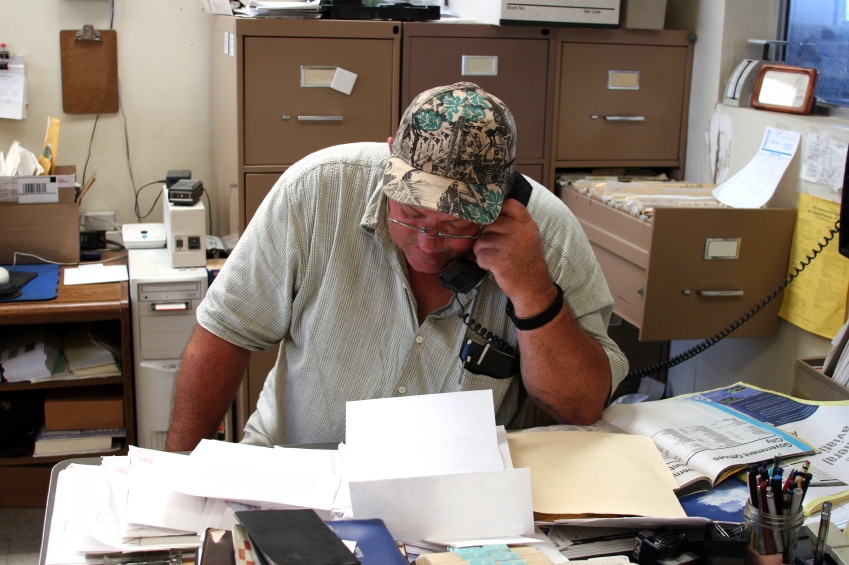September 12th, 2018 by Jamie Estep
Confessions of a Risk Analyst (Part 3)
Filed in: Monthly Newsletters |
If you missed the previous two parts of Confessions of A Risk Analyst check out part one and part two.
What to do if your funds are on hold?
 If you are put on hold, the processor may or may not contact you about it. It generally depends on why you have been put on hold. Most commonly it will be to verify a transaction or batch, in which case it’s customary for the processor to reach out immediately and request invoices, card holder information, and other relevant financial information. It is in your best interest to be courteous and promptly send over what has been asked for. If you cannot provide everything they have asked for just explain what you are able to send and what you can’t send and the reason why. Generally, processors request more than they need to lessen the likelihood they will have to come back and make a second request, so its likely not a problem if you can’t send them everything they ask for right away.
If you are put on hold, the processor may or may not contact you about it. It generally depends on why you have been put on hold. Most commonly it will be to verify a transaction or batch, in which case it’s customary for the processor to reach out immediately and request invoices, card holder information, and other relevant financial information. It is in your best interest to be courteous and promptly send over what has been asked for. If you cannot provide everything they have asked for just explain what you are able to send and what you can’t send and the reason why. Generally, processors request more than they need to lessen the likelihood they will have to come back and make a second request, so its likely not a problem if you can’t send them everything they ask for right away.
It’s important to be courteous and prompt, and not saying you need to become friends with the risk department, but whether the person you speaking to makes the decisions or is just a liaison for the risk department, these people are part of the process of getting your funds released. Insulting them and telling them your going to cancel will not influence their decision and can often delay any action. Most processors try to handle batch related risk holds the same day in attempt to avoid delay your deposit, so it is in your best interest to respond as quickly as possible. If after you have received your funds you still feel like you don’t like how it was handled, then it would be best to reach out to the processor’s customer support and make a complaint there.
If you notice you are suddenly not receiving batches and the processor has not reached out to you, contact their customer service immediately. Do not mention anything about potentially being on hold, as this just raises suspicions. Most  merchants don’t know holds even exist and if you start asking if you’re on hold, it might be assumed that you were doing something you knew could get your funds held. If customer service does find that you are on hold, they will directly you to the proper people to speak with, sometimes it’s just a glitch in the fund transfer system or a minor technical issue. Remember the customer service employees generally don’t have access to detailed information concerning holds and risk related information, so most answers about why, are going to be speculative at best.
merchants don’t know holds even exist and if you start asking if you’re on hold, it might be assumed that you were doing something you knew could get your funds held. If customer service does find that you are on hold, they will directly you to the proper people to speak with, sometimes it’s just a glitch in the fund transfer system or a minor technical issue. Remember the customer service employees generally don’t have access to detailed information concerning holds and risk related information, so most answers about why, are going to be speculative at best.
Again, once you reach the risk department, go ahead a provide them with whatever they ask for. Risk groups are generally going to ask for invoices, financials, and possibly even tax returns in rare situations. If you feel they are requesting something unreasonable, just talk to them about it. Again, many times they are trying to request more than they need so they don’t have to keep reaching back out to you, if a risk assessor is not satisfied with the initial documentation. If they are looking at your account due to chargeback related issues then the process is definitely going to take longer than a day. In rare and complicated cases, these issues can go on for weeks or month, and the details on those are vary on a case by case basis. This is outside of their control, the issuer controls the chargeback process, the processor is just an advocate for the merchant.
The key takeaway here is that it’s in the processors and the business’s best interest to get risk related issues resolved as quickly as possible. While most risk related issues can be handled within a day, others take more time and energy by both the processor and the business. Remaining professional helps the process move along at its fastest pace. You can always put in a complaint about the process once your funds have been released or if the process has started taking longer than expected.
This will never happen to my business!
You may feel like your business isn’t the type to be victim to fraudulent transactions, customer disputes, or wild changes in transactions or batches and that none of this applies to you.
 We’ve worked on dozens of these issues where a business thought it couldn’t happen to them and was crushed by any of the previous mentioned issues. Some of those business knew they were doing something that could get them in trouble, but most were just normal businesses doing what they do and become victims of fraud or a distributor that quit supporting or shipping the products they sold. We’ve had numerous contractors and suppliers who processed very large transactions only to find out later that the transactions were fraudulent. Remember just because you receive an approval authorization, that doesn’t mean the transaction is legitimate indefinitely. A chargeback can be issued in some cases up to 18 months after a transaction was processed and by that time the money has already been spent by the business.
We’ve worked on dozens of these issues where a business thought it couldn’t happen to them and was crushed by any of the previous mentioned issues. Some of those business knew they were doing something that could get them in trouble, but most were just normal businesses doing what they do and become victims of fraud or a distributor that quit supporting or shipping the products they sold. We’ve had numerous contractors and suppliers who processed very large transactions only to find out later that the transactions were fraudulent. Remember just because you receive an approval authorization, that doesn’t mean the transaction is legitimate indefinitely. A chargeback can be issued in some cases up to 18 months after a transaction was processed and by that time the money has already been spent by the business.
Take time to look at your business and plan for potential risk related issues. Give yourself a sort of pressure test to see where your business is weak and look to avoid deal in those areas or strengthen those areas. Also do research on avoiding card holder fraud. Small changes to your business can a big deterrent for criminals as they tend to only go after easy targets. If you do find yourself in some risk related issues, remain calm and work with the processor to get through it as quickly as possible.




